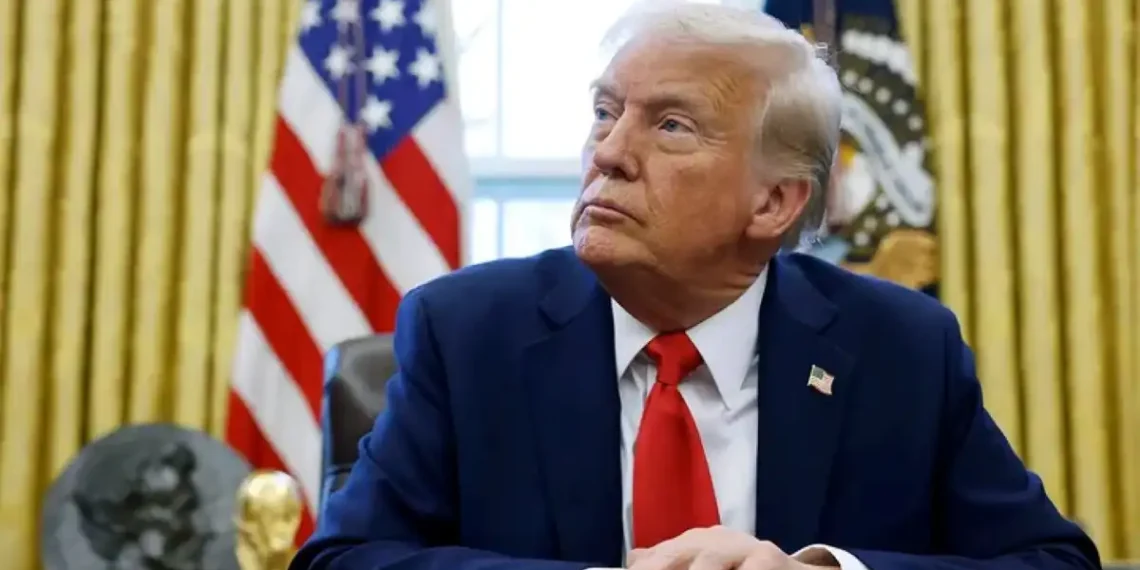SCOTUS Curbs Power of Lower Courts to Block Trump Policies Nationwide
High court avoids ruling on birthright citizenship, but sets limits on federal injunctions
In a major decision with broad implications, the U.S. Supreme Court on Friday limited the ability of federal judges to block presidential policies nationwide — a legal tactic that repeatedly stymied former President Donald Trump’s executive orders during his time in office.
In a 6–3 ruling, the court said lower courts can no longer routinely issue “universal” injunctions — broad rulings that halt federal policies across the country — unless certain narrow conditions are met. The justices stopped short of deciding whether Trump’s controversial birthright citizenship order is constitutional, but instructed the lower courts to reassess their previous injunctions under the new guidance.
A Win for Trump’s Legal Strategy
The ruling marks a significant win for Trump and his legal team, who have argued that universal injunctions unfairly block presidential powers by allowing a single judge to shut down policies for the entire country.
Trump celebrated the decision on Truth Social, calling it a “GIANT WIN.” He also claimed it indirectly bolstered his position on birthright citizenship, even though the court avoided taking a position on that specific issue.
“Even the Birthright Citizenship Hoax has been, indirectly, hit hard,” Trump wrote, referring to a policy that would deny citizenship to children born in the U.S. to undocumented immigrants.
Solicitor General John Sauer, who argued the case, had insisted during oral arguments that lower courts were overstepping by issuing sweeping injunctions that disrupted the administration’s agenda.
“Universal injunctions force the government to win everywhere,” Sauer said, arguing that they upend the normal judicial process.
What the Court Actually Decided
Writing for the majority, Justice Amy Coney Barrett clarified that the ruling wasn’t about the substance of Trump’s birthright citizenship order, but rather the scope of judicial remedies.
“The issue before us is one of remedy,” Barrett wrote. “Whether, under the Judiciary Act of 1789, federal courts have equitable authority to issue universal injunctions. A universal injunction can be justified only as an exercise of equitable authority, yet Congress has granted federal courts no such power.”
The ruling orders lower courts to revise the existing injunctions — including those that blocked Trump’s birthright citizenship ban — and ensure they apply only to individual plaintiffs in each case, not the entire country. The Supreme Court also delayed enforcement of the order for 30 days to allow time for adjustment.
Fierce Dissent from Liberal Justices
The court’s three liberal justices — Sonia Sotomayor, Elena Kagan, and Ketanji Brown Jackson — dissented, warning that the decision strips federal courts of one of their most effective tools for checking unconstitutional government actions.
In a blistering dissent, Sotomayor called the ruling:
“Nothing less than an open invitation for the Government to bypass the Constitution.”
She warned that under the new standard, the government could implement unlawful policies with near impunity — at least until every affected individual files their own lawsuit.
“The Executive Branch can now enforce policies that flout settled law… the Government may act lawlessly indefinitely,” she wrote.
Justice Jackson echoed that concern, saying the decision will “disproportionately impact the poor, the uneducated, and the unpopular” — people least able to quickly challenge harmful policies in court.
What’s Next for Birthright Citizenship?
The court did not rule on the legality of Trump’s birthright citizenship order itself, which would deny citizenship to children born in the U.S. to undocumented immigrants — a move many legal scholars argue violates the 14th Amendment.
Instead, the court kicked that question back to the lower courts, instructing them to rework their injunctions under the new limitations. That means the constitutional question remains unresolved — for now.
The original lawsuit stemmed from district court rulings in Maryland, Massachusetts, and Washington state, where judges issued nationwide blocks on Trump’s order.
While those cases were the foundation of the Supreme Court’s review, the justices made clear that their focus was on judicial power, not immigration policy.
Broader Implications
Legal experts say the ruling could have sweeping effects across the judiciary, especially in politically charged cases. Over 300 lawsuits have been filed against the Trump administration since his second term began in January 2025 — many of which relied on nationwide injunctions to halt federal policies.
Justices across the ideological spectrum had expressed concern during oral arguments about the growing use of universal injunctions. Even Chief Justice John Roberts questioned how to rein them in without handcuffing lower courts completely.
“No one seems to think this system is working well,” one justice remarked during the May 15 hearing.
New Jersey Solicitor General Jeremy Feigenbaum, representing the states, argued that while there are alternatives to universal injunctions — such as class actions — they may not move quickly enough in urgent cases.
“We just don’t think that supports a bright line rule that says [universal injunctions] are never available,” Feigenbaum said.
Still, the court ultimately sided with the Trump administration’s view that the use of universal injunctions had become excessive and legally unsupported.
Political Fallout
Attorney General Pam Bondi and others in Trump’s orbit quickly praised the decision as a long-overdue course correction.
“Today, the Supreme Court instructed district courts to STOP the endless barrage of nationwide injunctions against President Trump,” Bondi said. “This Department of Justice will continue to zealously defend @POTUS’s policies and his authority to implement them.”
The ruling adds a new layer of complexity to future legal battles over executive power — not just for Trump, but for future presidents of both parties. It may also usher in a wave of narrower, plaintiff-specific legal challenges rather than sweeping rulings from a single courtroom.
For now, the future of birthright citizenship — and the limits of presidential power — remains very much in flux.
This article was rewritten by JournosNews.com based on verified reporting from trusted sources. The content has been independently reviewed, fact-checked, and edited for accuracy, neutrality, tone, and global readability in accordance with Google News and AdSense standards.
All opinions, quotes, or statements from contributors, experts, or sourced organizations do not necessarily reflect the views of JournosNews.com. JournosNews.com maintains full editorial independence from any external funders, sponsors, or organizations.
Stay informed with JournosNews.com — your trusted source for verified global reporting and in-depth analysis. Follow us on Google News, BlueSky, and X for real-time updates.














